Library of Scientific Works
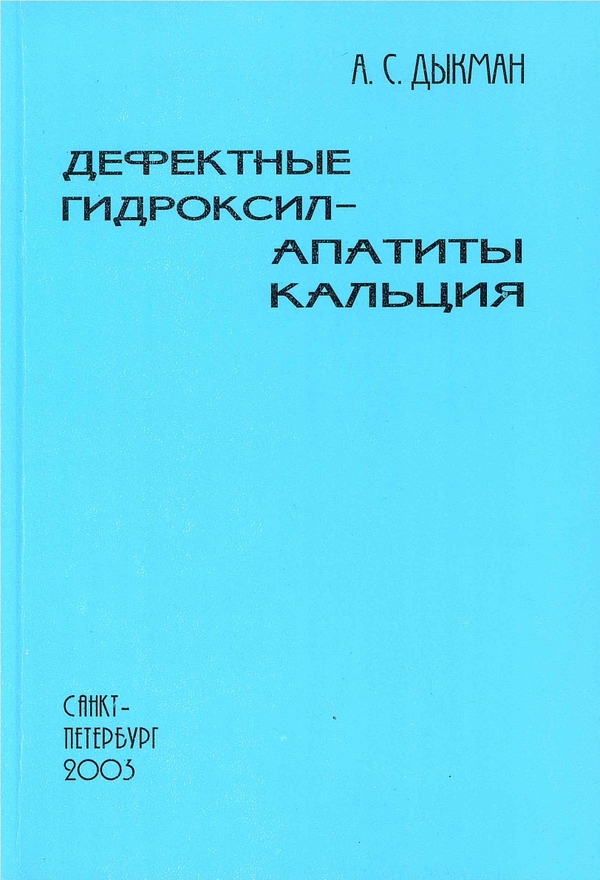
The subject of consideration was the properties, preparation and use of apatite-like calcium phosphates (calcium deficient hydroxyapatites) as decomposition catalysts for oxygen containing compounds. Particular attention is paid to the second stage of the isoprene synthesis process - the decomposition of 4,4-dimethyl-1,3-dioxane with new catalysts developed by the author.
This monograph is intended for workers in the chemical and petrochemical industry and specialists in the field of heterogeneous catalysis. It can also be useful for teachers, PhD candidates and university students.
Bibliographic data:
Dykman, A.S.
D878 Calcium deficient hydroxyapatites. – Saint Petersburg: Chemical Literature Publishing House, 2003. – 80 p., illustrated.
ISBN 5–93808–084–3
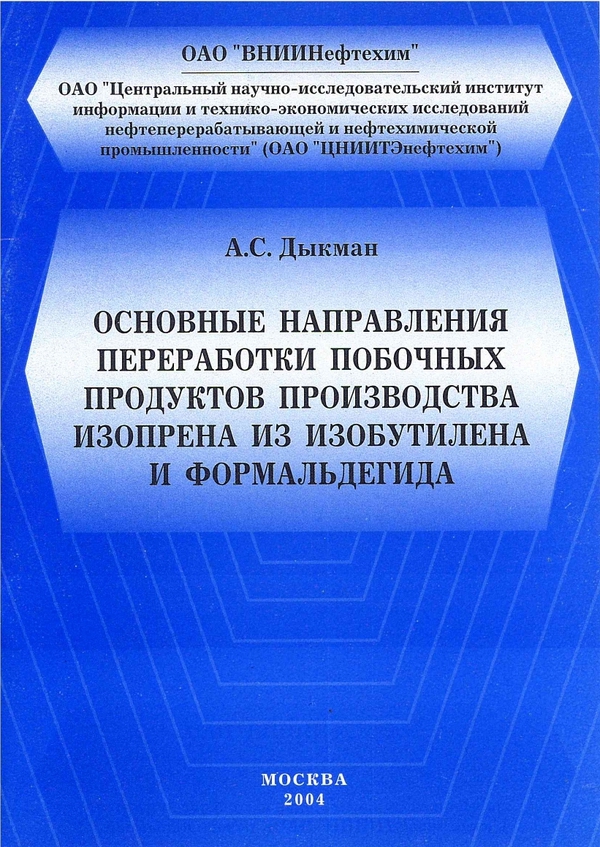
Extract: “Back in the day, the commissioning of the first two plants operating with the “dioxane” technology, was justly considered as a significant success of national science and industry, which relieved the country from the necessity to purchase natural rubber abroad. However, in those years, there was a lack of due attention to selective use of raw materials, and technical solutions, forming the basis of the design of plants under construction, initially contained problems that interfered with the normal operation of these plants. In particular, a serious drawback of the dioxane process is the formation, along with dimethyldioxane (DMD), of significant amounts of higher boiler by-products, the yield of which reaches 400-450 kg/t of isoprene. The design did not prescribe any methods for the disposal of this fraction (other than using it as a boiler fuel), although by that time it was known that higher boiler by-products are formed in parallel with DMD, and, therefore, their formation is inevitable. As a result, since the plants were commissioned, the qualified use of higher boiler by-products turned into one of the sensitive issues of the current production”...
Bibliographic data:
Dykman, A.S.
Main ways to process by-products of isoprene production from isobutylene and formaldehyde: the monograph / A.S. Dykman. – Moscow, 2004.
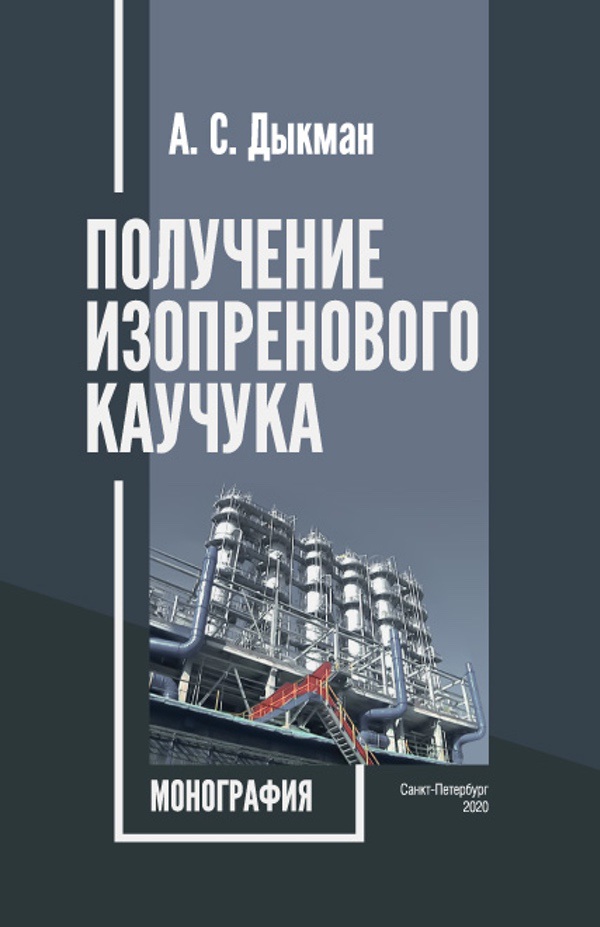
The monograph considers the processes for production of isoprene monomer and isoprene rubber, which is one of the main components in the production of tyres and industrial rubber goods. The author analyzed various methods of isoprene production, their advantages and disadvantages. The book describes issues of kinetics and mechanisms of the main reactions, principles of catalyst selection, process flow diagrams for preparing both monomer and polymer. A new liquid-phase technology for the preparation of isoprene from isobutylene and formaldehyde is described in detail, as well as its technical, environmental and economic advantages in front of other methods of monomer preparation. The monograph contains data on the possibility to obtain highly-profitable products based on formaldehyde and isobutylene, — such as isoprenol, geraniol, citrals, vitamins A and E, which will significantly increase the efficiency of the polyisoprene preparation process and allow it to compete successfully with natural rubber. The author shares with readers his semicentenary experience in the development and implementation of new technologies in the USSR and in modern Russia. The chapter “The way it was” tells about people who created and implemented the process of isoprene rubber preparation on an industrial scale.
The book will be useful for teachers, students of chemical and technological specialties of universities, PhD candidates and production specialists.
Bibliographic data:
Dykman, A. S.
D87 Isoprene Rubber Preparation: the monograph / A. S. Dykman. —
Saint Petersburg: GIORD, 2020. — 360 p.: illustrated.
ISBN 978-5-98879-217-8
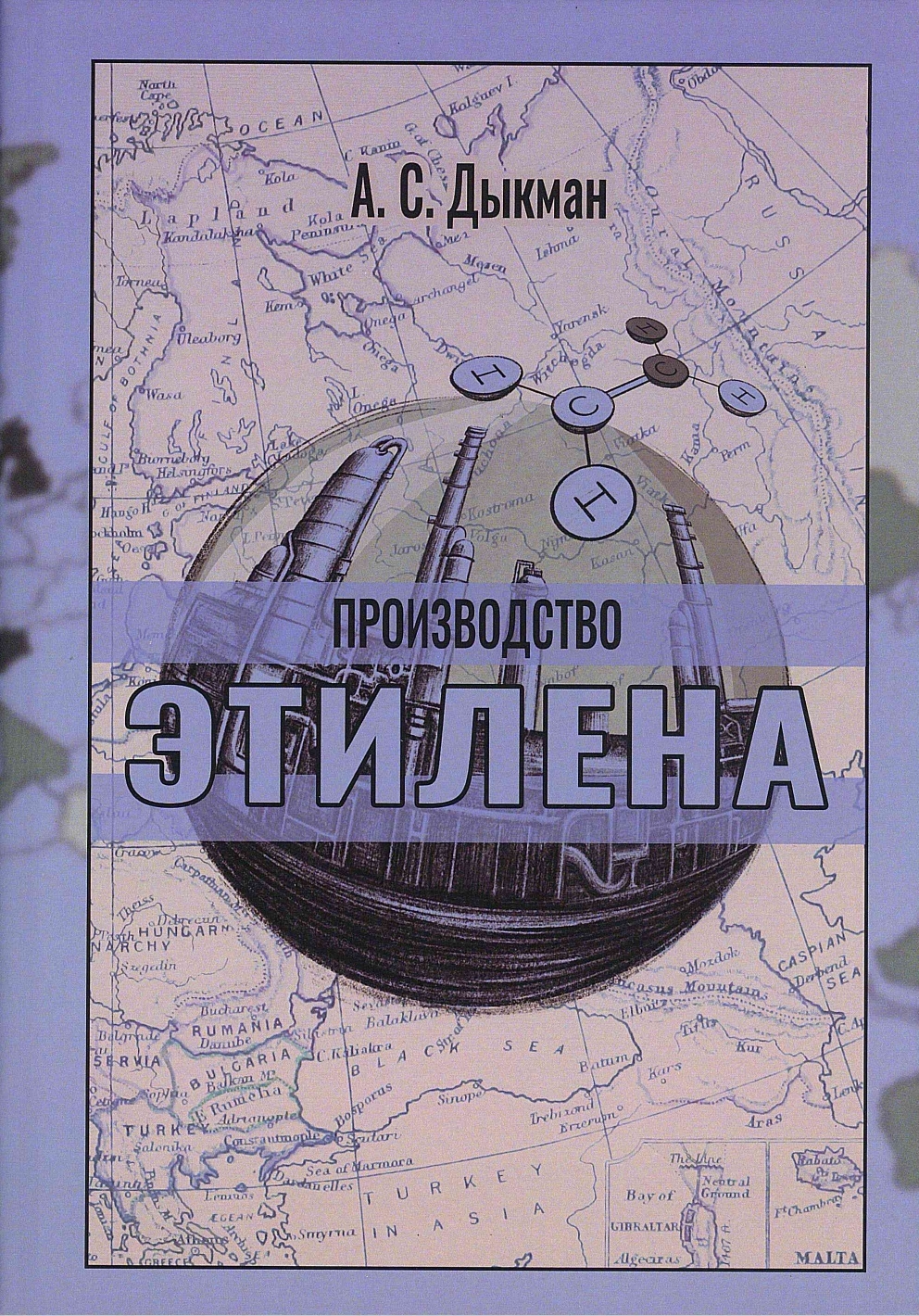
The monograph considers the role of ethylene in the modern world and the global ethylene market, describes various industrial methods of its production, analyzes the history, current state and prospects for the development of petrochemical industry and ethylene production in Russia.
The final chapter is dedicated to global problems of plastic waste disposal connected with ethylene production. There is a description of the current state of the problem of waste material disposal.
The book will be useful for teachers, students of chemical and technological specialties of universities, PhD candidates and production specialists.
Bibliographic data:
Dykman, A. S.
D87 Ethylene production: the monograph / A. S. Dykman. —
Saint Petersburg: GIORD, 2022. — 328 p.
ISBN 978-5-98879-224-6
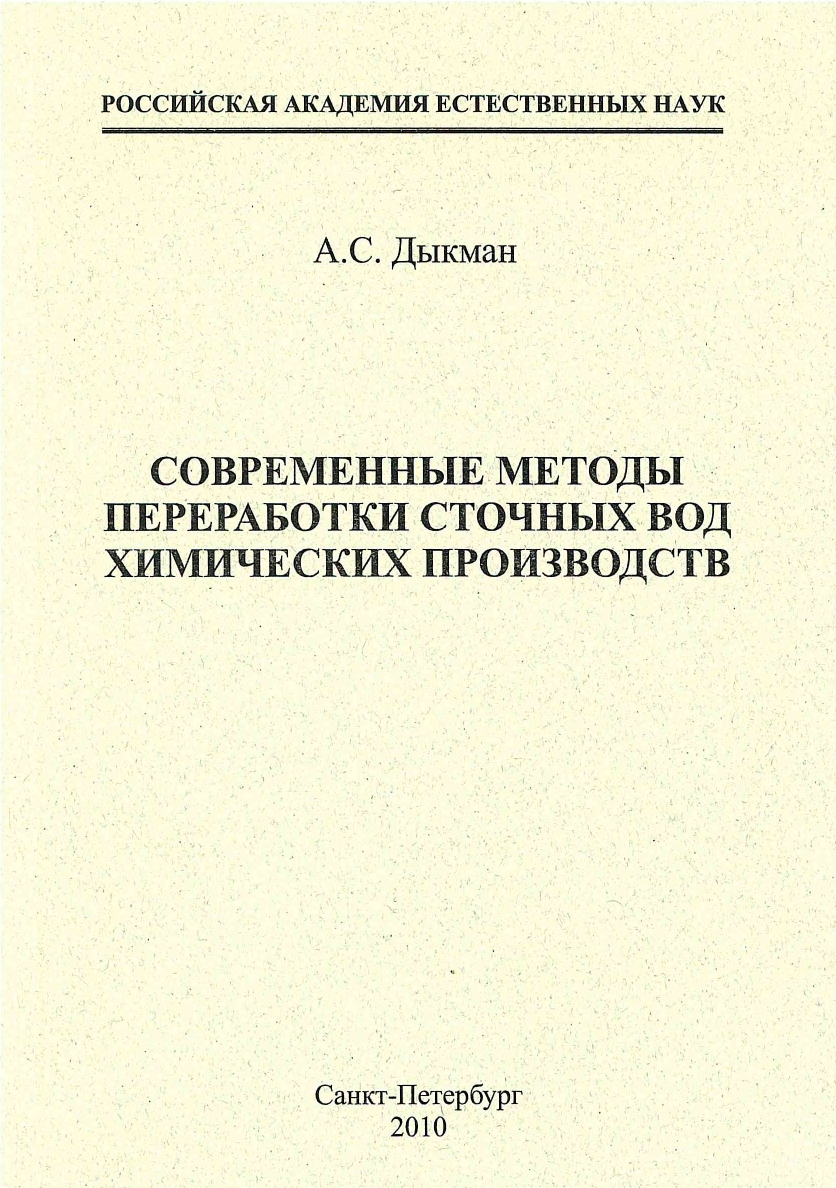
The monograph considers problems connected with the use of water resources and environmental pollution with waste water of various origin. There is a description of the methods of waste water treatment, which are applied at the moment in practice, in the monograph. The author covers the issues of treatment and reuse of chemical plant waste water. The ways to increase the efficiency of water use at industrial plants are shown.
The publication may be useful for the specialists in the chemical industry, researchers busy with the issues of water conditioning and purification, as well as waste water treatment, and also for the employees of scientific institutions and academic degree seekers.
Bibliographic data:
Dykman, A. S.
Modern methods of chemical plant waste water treatment. – SPb.: Scientific Production Association “Professional”, 2010. – 104 p.: illustrated.
ISBN 978-5-91259-065-8
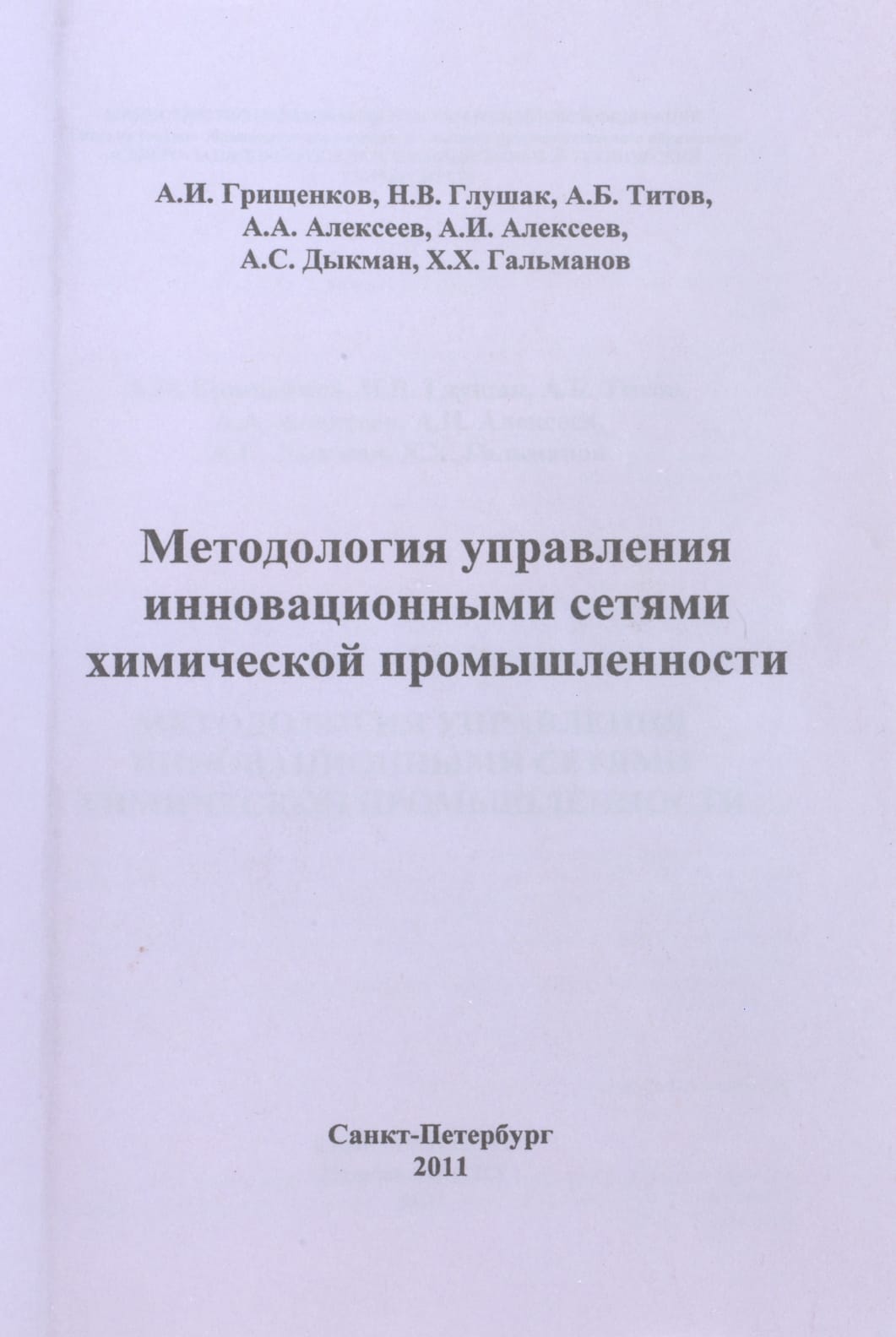
The monograph presents the result of the joint research activity of the authors on the arrangement of innovation networks. The research results are resolved into the principles of methodology, theory and methods of organization of the innovation process, based on the network principles.
The work also includes the analysis of the modern genesis of innovations, the discussion on the evolution of the innovation process models and methods for constructing efficient platforms for the arrangement of innovations.
The piece of research is intended for students, university teachers and Ph.D. students of economic and chemical specialties.
Bibliographic data:
Dykman A.S., Galmanov Kh.Kh., Grishchenkov A.I., Glushak N.V., Titov A.B., Alekseev A.A., Alekseev A.I.
Methodology for managing innovation networks of chemical industry. – SPb: NWTU, 2011. – 195 p.: illustrated, tab.
ISBN 978-5-86587-341-9
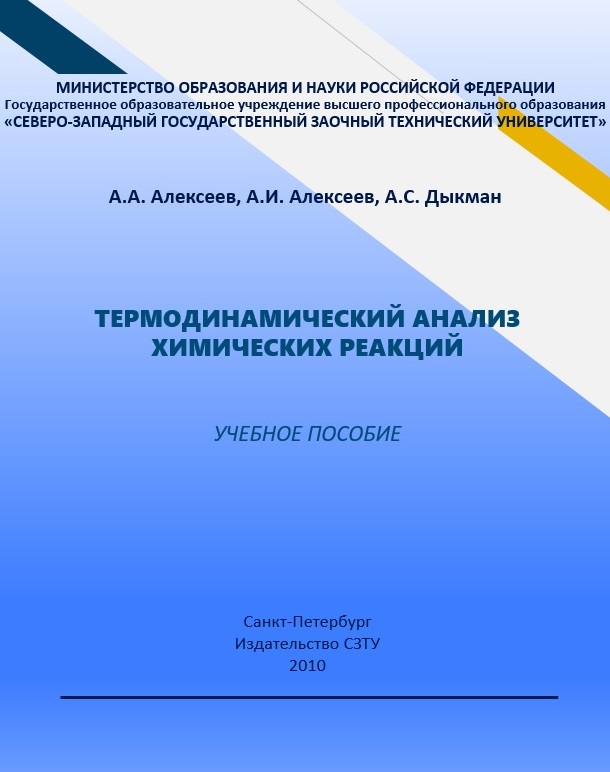
The study guide has been developed in accordance with the requirements of state educational standards of higher professional education.
The study guide is based on many years of experience in teaching theoretic subjects of chemical nature at the North-West State Extramural Technical University at academic departments of chemical technology of organic and inorganic substances.
The material is set out assuming that students are already familiar with the laws of physical chemistry and the most important chemical processes studied in the courses "General Chemical Technology" and "Processes and Equipment of Chemical Technology".
The study guide considers the application of the laws of chemical thermodynamics to the calculation of various technological parameters of organic and inorganic industries.
This study guide is intended for students learning the following disciplines: "Theory of chemical-technological processes of organic synthesis", "Theoretical foundations of the technology of inorganic substances", "Calculation of thermodynamic and kinetic characteristics of processes".
Bibliographic data:
Alekseev A.A., Alekseev A.I., Dykman A.S.
Thermodynamic analysis of chemical reactions: study guide. – SPb: NWTU, 2010. – 180 p.
